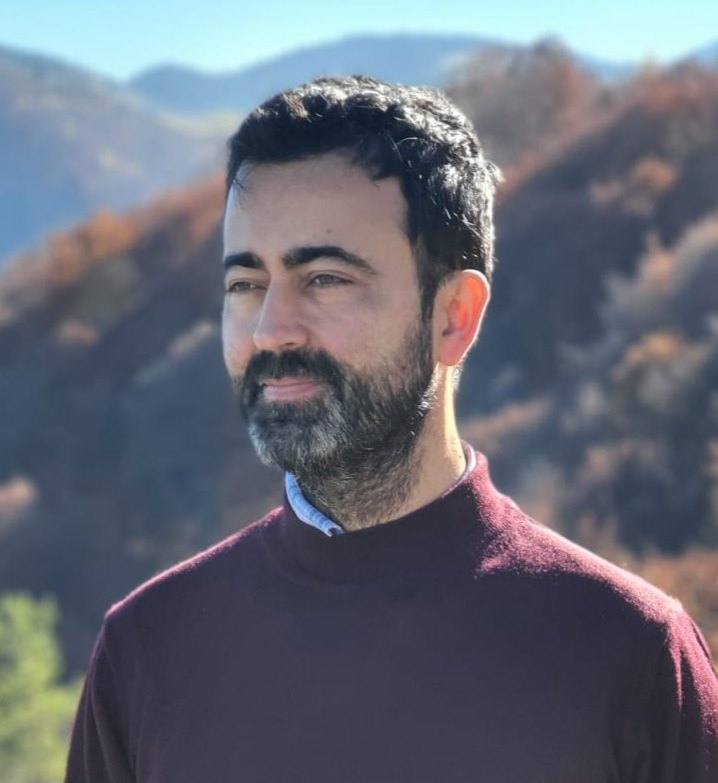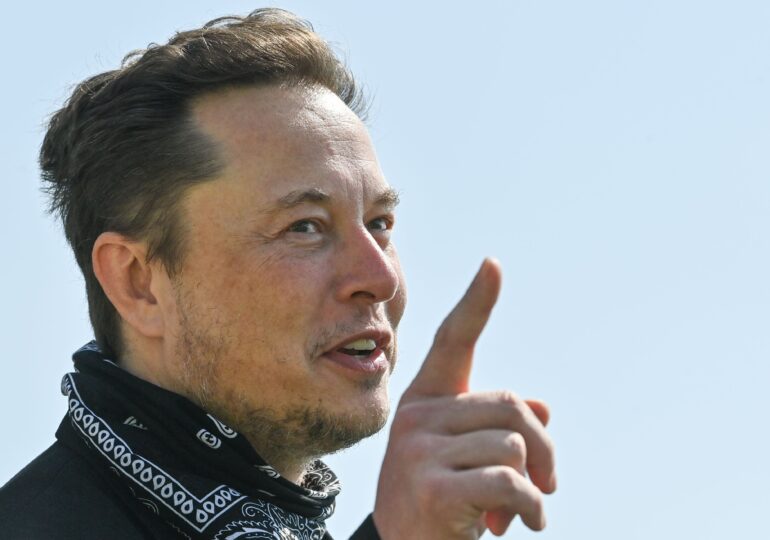„The American strategy, of Trump and his friends, is rather to have as interlocutors ideologically aligned regimes, as much as possible, even if this weakens Europe or especially if this weakens Europe as a whole and then leads to more individual negotiations, based on the principle divide et impera.”
Why does Elon Musk take over Călin Georgescu’s messages, a signal that can be interpreted as validation and, in any case, capitalized by Georgescu’s isolationist team? And how should we respond to American pressures for the Tate brothers, accused in Romania of serious criminal offenses, including sexual assault?

Intense battles are currently taking place globally regarding how we define any kind of normality, normality in international relations, normality in politics, normality in business.
And the Trump administration is a contesting one of the former normality and one that very clearly wants to impose the broad lines, even forcefully, of the new normality, explains political analyst Radu Magdin, in dialogue with spotmedia.ro.
The Tate brothers are part of this broader, radical right-wing network, being popular promoters for a part of the audience, of a toxic masculinity model. However, there is a market for such things, and unfortunately, you don't even realize if it's the effect or the cause of the cultural wars."
Officially, there will be no announcement from the American administration, but unofficially in Romania, we are in a zone where we, being provincial for over a decade and devouring any kind of news like lizards, regardless of the channel, to validate our prejudices, mostly untested on a global scale, we are vulnerable, explains Magdin.
On the other hand, Romania's position is ungrateful, and one of the explanations for why we were ignored at the Paris meeting lies in the vulnerability left by the Iohannis regime.
For ten years, we have been paralyzed in terms of image and internal influence promotion, and it doesn't help us at all that Iohannis has now left, because we are paying the price for this subservience and provincialism.
Radu Magdin
Although Vice President Vance's speech in Munich was aimed more at the German elections, we now have Tuesday morning posts by Elon Musk focusing more directly on Romania. He takes a message from Călin Georgescu about the destruction of "Sorosists." What is the actual stake here? Is it support for C. Georgescu?
First and foremost, Romania, accustomed until now to a lukewarm politics and wooden language devoid of passion, finally discovers the cultural wars and the major lines of ideological global competition.
As a result, a candidate and several political formations in Romania, understanding either themselves or those advising them the usefulness of aligning with global right-wing networks, try to tailor narratives that appeal to them, and suddenly a series of stories emerge that have been used before in Hungary and the United States.
Regarding the aforementioned tweet, with Georgescu's message, Soros has been a sort of enemy of the people for the conservative network. And not just in the sense that he was one of the donors to the Democratic Party, because even Republicans, for example, have had very powerful donors, including Mr. Musk, but rather because Soros had the motivation, in the early 90s, to contribute to the development of a global network of thinkers through the Open Society Foundation.
Currently, we see tension between the thinkers and the radical right-wing networks and those they see as the thinkers of the former elite or the current political system in several countries. As long as our communicators say what is needed according to the tune of Musk's or other American political communicators' ears, they will certainly receive a retweet.
Furthermore, we must understand that the American strategy, and when I say American, I refer to Trump and his friends, is rather to have ideologically aligned interlocutors, as much as possible, even if this weakens Europe, or I would dare to say, especially if this weakens Europe as a whole and then leads to more individual negotiations, based on the principle divide et impera.
From this perspective, let us not be surprised if this network would rather have interlocutors who are to their liking, to say what they want, in the near future.
Officially, there will be no announcement from the American administration, but unofficially in Romania, unfortunately, we are in a zone where we, being provincial for over a decade and devouring any kind of news like lizards, regardless of the channel, to validate our prejudices, mostly untested on a global scale, we are vulnerable at the moment.
And I would like to make a comment on how what happened in Romania and the accusations of involvement of a state actor, more precisely Russia, were perceived by some American conservatives. This resonated negatively for some of them, unfortunately, with the 2016 moment. As long as we have not documented properly and have not had a transparent investigation about the situation, the credibility of the Romanian state has decreased in the eyes of these networks.
At the same time, a part of Vance's speech must be understood that America wants certain rules of the game.
It's not about wanting Georgescu or Simion or anyone else. But ultimately, if we have certain rules of the game - in the sense that even if someone is considered extreme or holds opinions that are not "politically correct" by some, those people should be allowed to run, and if there is a political market for them, that means democracy.
Some in the global conservative network view the case in Romania - especially since, unfortunately, it has been used by certain European political actors, including the French and Germans - as having reached the American radar for the idea of a possible precedent. Preventively, Vance wanted to send a signal that what happened in Romania should not be repeated.
Let's not forget that in a few days we have elections in Germany, where the AfD is in the polls as the country's second-largest party, and I believe one of the things this network visibly desires, including through Mr. Musk, is a very good score for the AfD and the elimination of any risk in the context that these elections could be annulled using any kind of precedent, including a Romanian one.
We have another episode, the pressure from the US on Bucharest for the Tate brothers, criminally investigated in Romania, among other things for sexual assaults. There are two questions here - why are the Tate brothers important for the US administration? And second, what do these pressures mean for Romania?
The Tate brothers are part of this broader, radical right-wing network, being popular promoters for a part of the audience of a toxic masculinity model, in my opinion.
One is the strong and elegant man, respectful of others, and the other is the strong, dominant, misogynistic man, the model promoted by the Tate brothers. But there is a market for such things, and unfortunately, you don't even realize if it's the effect or the cause of the cultural wars won by the Democrats on the other side.
Sometimes, when you looked at the cultural wars in the United States, you had the feeling that even the Democrats were going a bit too far, offering Republicans the opportunity for a moral ascendancy. For example, I think even Mr. Musk mentioned this in a tweet - we had several centuries where there were two sexes, then between 2022 - 2024, 73 sexes, from 2025 back to two sexes.
The basic idea is as follows: intense battles are currently taking place globally regarding how we define any kind of normality, normality in international relations, normality in politics, normality in business. And the Trump administration is one that contests the former normality and one that very clearly wants to impose the broad lines, even forcefully, of the new normality. It remains to be seen what the counter-reaction will be on the other side, because every action certainly has a reaction.
Regarding the pressures on us, certainly, there are always pressures among allies. Larger countries can exert pressure on smaller countries, even those considered allies. However, where we are talking about some principled cases and have some basic rules, especially because America, even in the Trump version, will promote the idea of rule of law, because it is essential to the American system, I believe we can also find refuge in this defense of the rule of law area, and as long as there is evidence against these gentlemen, they should not be able to escape the Romanian legal framework easily.
Romania was not at the Paris meeting. Neither were most other European states, mostly. However, Romania has the longest border with Ukraine, for example. Could we have sat at that table, is it a legitimate issue?
I think we could have sat at the table, and I believe Paris could have done us a "favor," in the context of internal vulnerability. However, we are only now paying the price of recent years because the problem is partly with the one who invites you, and the problem is also with the one who believes you should have been invited legitimately.
For ten years, we have been paralyzed in terms of image and internal influence promotion, and it doesn't help us at all that Iohannis has now left, because we are paying the price for this subservience and provincialism.
Where we have legitimate interests, we did not have a voice, we did not know how to show personality, we did not always have the capacity for initiative at key moments.
For example, I also looked at recent reactions to Vance's speech. Almost none of the institutional reactions showed a bit of personality, that is, to show that something has changed compared to the Iohannis period, to show that Romania feels something, thinks something, as stressed as Romania is politically and perhaps geopolitically at the moment, this country still has personality.
Yet, I am sorry, but what I saw from the palace area did not show this personality but rather a retreat back to wooden language and our narrative without salt, without pepper, as always.

